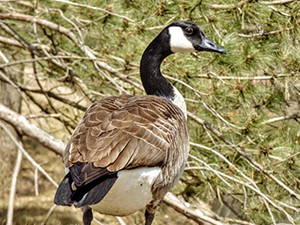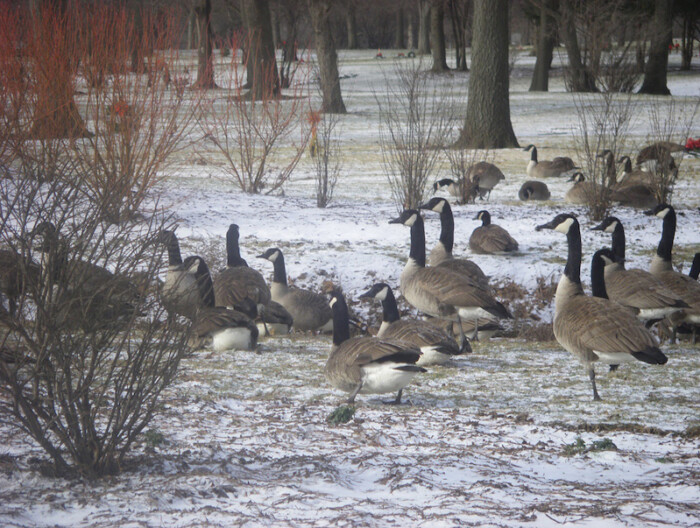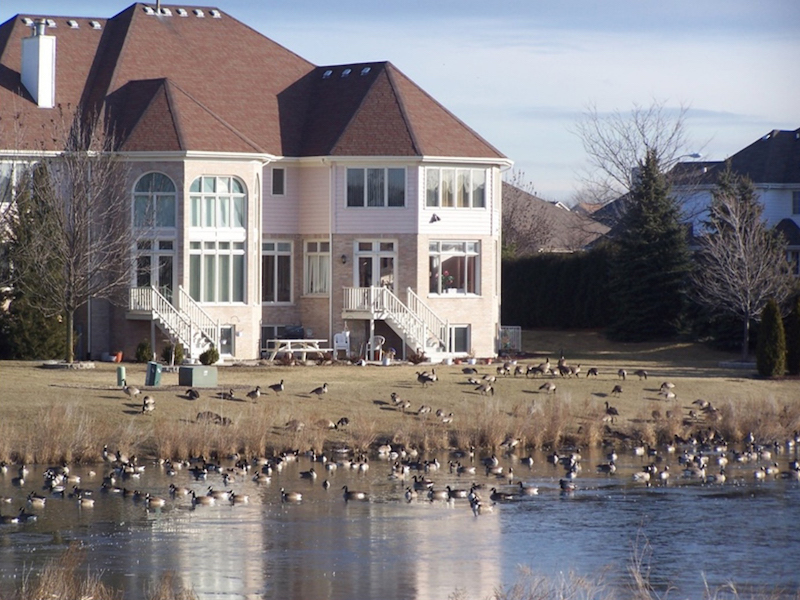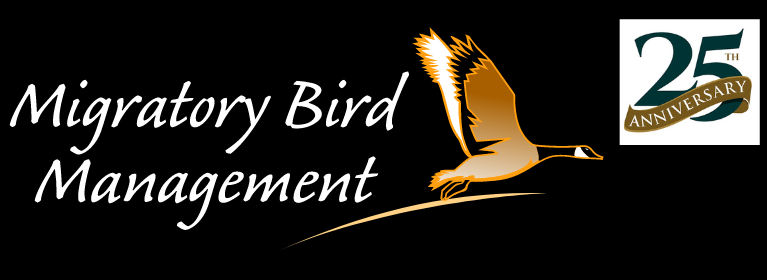The Differences Between Resident & Migratory Canada Geese
Nov 21, 2023
“Geese don’t migrate anymore!” is something we hear a lot – and we understand why: when you see a gaggle of geese loitering around a frozen pond in the winter, it’s easy to mistakenly believe that Canada geese stay put year-round. But, contrary to what these lingering geese may lead you to believe, geese do still migrate – just not all geese. The ones you see wandering around when temperatures plummet are resident (and not migratory) geese.
To help demystify the confusion, we’ll explore the biology, history and science of Canada geese and consider the role memory plays in misconceptions about their migratory habits.
Biology
There are several distinct subspecies of Canada Geese that differ in size and behavior. These subspecies can interbreed biologically, but, because their contact is limited by geographic constraints, they don’t commonly mix. The subspecies that lives and breeds in the Midwest is the largest of the bunch: the “Giant” Canada goose.
History
In the early 1900s, Giant Canada geese were relentlessly hunted for their meat and feathers. Their large size, fearless attitudes, and abundance made them an irresistible target, especially compared to other species of wild geese. Unfortunately, this led to overhunting so extreme that Giant Canada geese were thought to be extinct for over 30 years.
This wasn’t quite the case, however. In the early 1960s, Harold C. Hansen of the Illinois Natural History Survey found a remnant population of Giant Canada geese near Rochester, Minnesota. Other small populations were found, and conservation and relocation efforts began. These efforts were exceedingly successful and Giant Canada geese numbers rebounded.
Science
Most subspecies of Canada geese are migratory, flying dedicated paths from their breeding areas to their wintering grounds. Unlike these subspecies, Giant Canada geese are considered “resident” birds who tend not to stray from the (comparatively) mild Great Lakes region, to which they are native. This subspecies does not, and has never, migrated – at least, not how we typically think of migration. Their larger size and heavier bodies, coupled with the relatively warmer winters they are accustomed to, means migration is both much more costly and far less necessary. Giant Canada geese do move around, as needed, to find food and open water, but rarely more than 100 miles from where they hatched.

Memory
Much of the confusion people have about modern-day migratory patterns can be chalked up to faulty collective memories. Older generations may remember that, when temperatures dropped each year, all geese would migrate to warmer climates. However, what people are likely actually remembering is the extirpation of the Giant Canada goose subspecies. Before their populations were restored, no resident geese were around to ride out the winter – all we had were the migratory subspecies that flew through twice a year to head to and from their breeding grounds.
Now that resident geese have returned, we get both the geese that stick around all year, and those that migrate. On top of that, our resident geese draw migratory ones in and can even keep them here if the weather stays mild.
So, What Does All This Mean?

Because the Midwest plays host to both resident and migratory geese, we get double the trouble in early spring and late autumn. It isn’t uncommon for those who deal with nuisance geese to let their guard down a little in the fall. This is a mistake: to keep schools, golf courses, commercial properties, and more goose-free, constant vigilance is required.
Your Partner in Goose Management
If you’ve struggled to contain geese in the past, know that a mild December day could lead to an invasion of geese, creating a mess right before the holidays. Don’t let geese catch you in a lurch.
With over 25 years of experience controlling Canada geese (and other pest birds) with a variety of biology-based, highly effective deterrence solutions, the Migratory Bird Management team can help keep your property free from geese. Contact us to learn more about our services, or to schedule a site evaluation.




 0
0
